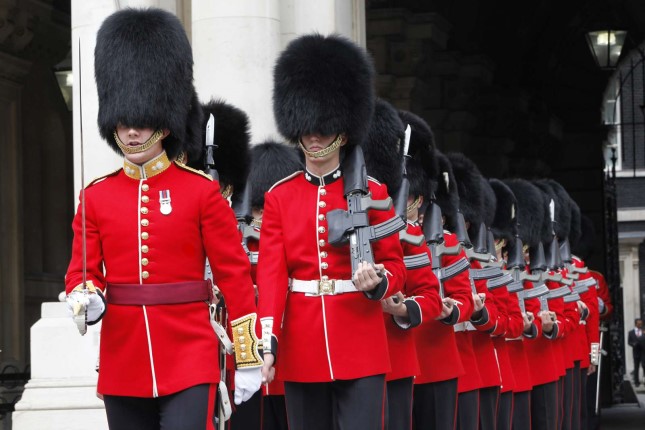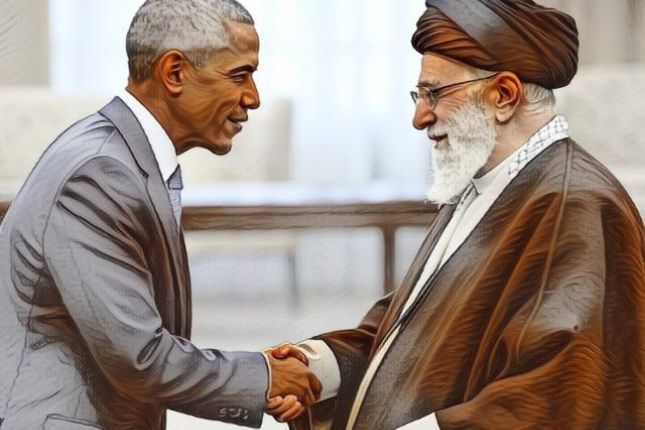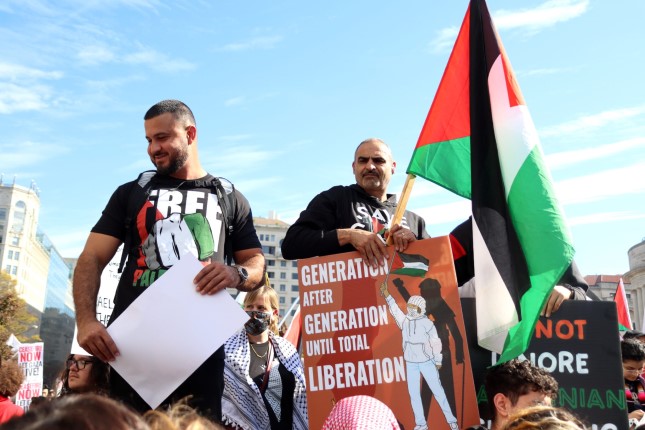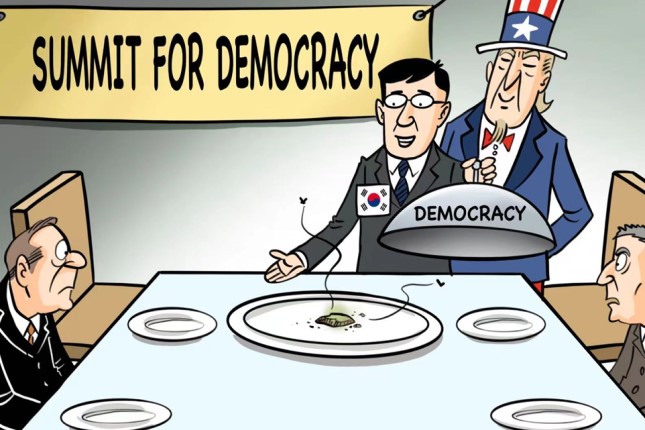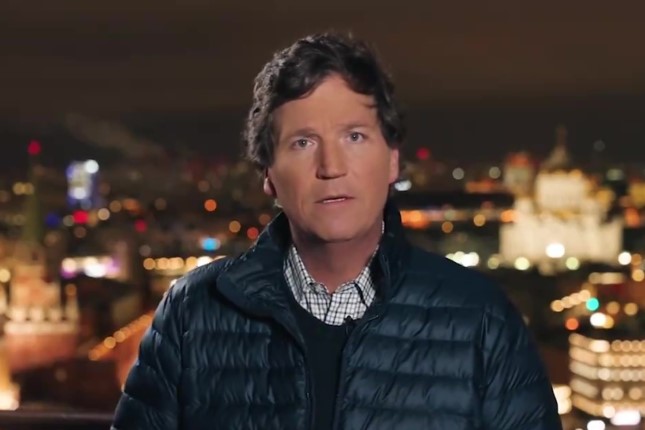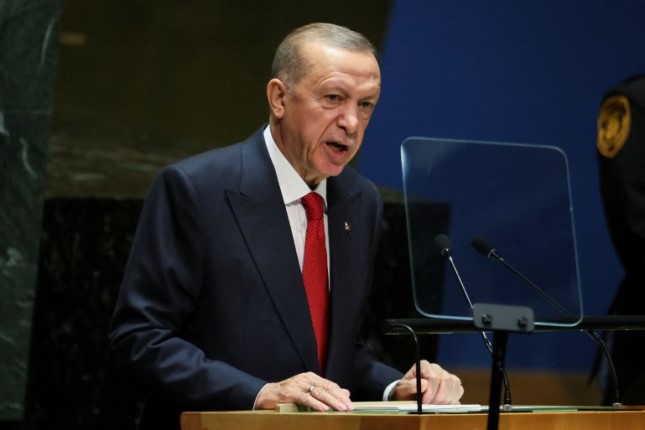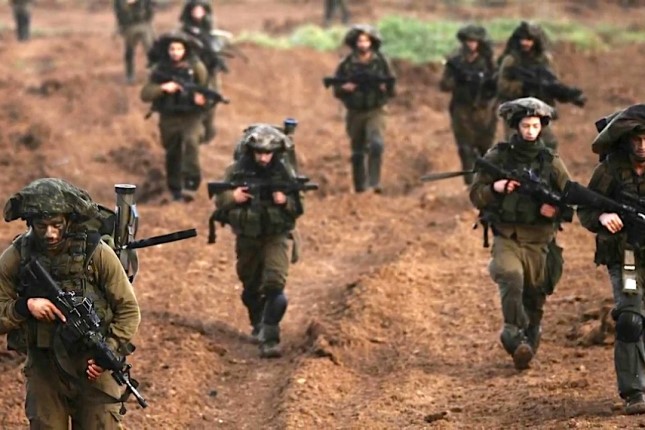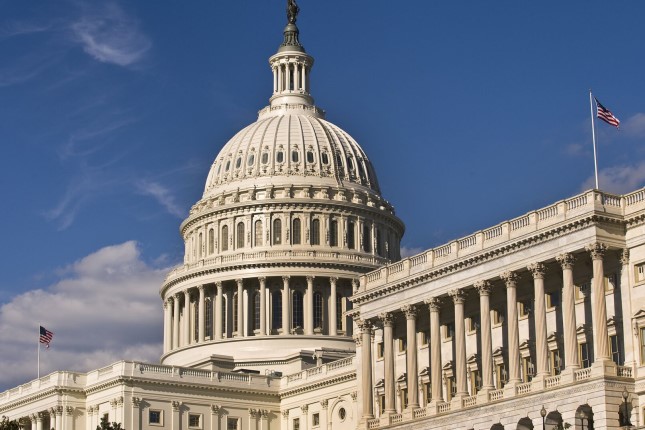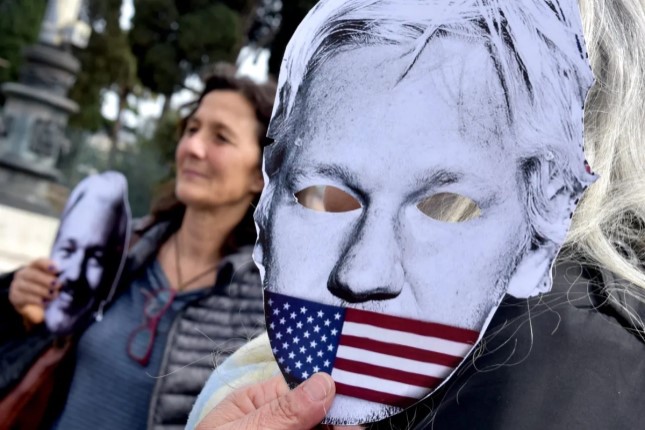In mid-November, former United Kingdom Prime Minister David Cameron was appointed British Foreign Secretary. He got to the key position in the government very quickly and unexpectedly for observers. Cameron was not a member of Parliament, so on November 13, King Charles III urgently elevated him to baronial dignity, and on the same day, Prime Minister Rishi Sunak put him in charge of the diplomatic department. Cameron's appointment opens a new era in British history: the independent reign of King Charles III. In the months and years to come, we will see a much more aggressive, self-reliant Britain that will attempt to restore its former imperial greatness by waging a major war and destroying its rivals in Europe.
Cameron's appointment ends a period when people like the eccentric Boris Johnson and Liz Truss, who shocked high-ranking interlocutors and colleagues with her slumbering ignorance, were brought into the leadership of foreign policy and the head of the government, or when there was a struggle for the prime minister's post in Great Britain between hereditary multimillionaires and nouveau riches from the richest Indian, Iraqi, and Pakistani families (Rishi Sunak, who proved to be the winner, Nadeem Zahawi, and Sajid Javid). The swift decision to return Cameron to political Olympus is the realization of the political will of the new King Charles III. The new-made baron comes from an aristocratic family, is a descendant of King William IV and one of the greatest German-Italian Jewish scholars of the Renaissance, Elia Levita, and his wife also has royal blood in her veins. At the head of the Foreign Office, David Cameron will have to implement the increasingly aggressive British foreign policy line and earn points for further struggle for the prime ministerial post.
David Cameron made his first trip abroad as British foreign secretary to Ukraine, where he met with President Volodymyr Zelenskyy. London's demonstrative support for the Ukrainian leader goes against the line of Britain's main NATO allies. Since the outbreak of war in the Middle East, Ukraine has had its arms supplies significantly cut and financial aid suspended. Over the past few months, both in Washington and Berlin, through publications in the mainstream media, have made it increasingly clear to Kyiv about the need to agree to a ceasefire with Moscow, while Zelensky himself is being forced to run for a new presidential election, which is fraught with at least a guaranteed loss of power against the backdrop of failures at the front. The Ukrainian president, who communicates with his Western partners and patrons in a frankly boorish manner, was turning into a political pariah. And now, at a critical moment, he receives the support of the head of the British Foreign Office and an incentive both to escalate the war against Russia (immediately after Cameron's visit, there were a series of drone attacks on Moscow and facilities in the Belgorod region) and to behave in a tough manner, increasingly irritating to Warsaw, Berlin, and Washington.
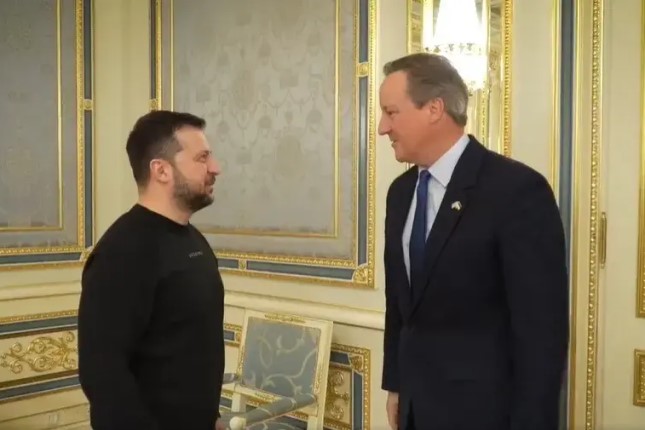
The new British foreign minister paid his first foreign visit to Kiev.
From Kyiv, the new British foreign minister traveled to Chisinau, where he held talks with Moldovan Minister of Foreign Affairs and European Integration Nicu Popescu. Cameron's visit to Chisinau coincided with a report by the Joint Control Commission (the joint governing body of the peacekeeping operation on the Dniester) about the digging of trenches on the Moldovan side. The country has already conducted 19 military exercises this year alone. Britain, it seems, is going to push the still stubborn Chisinau and President Maia Sandu to attack Transnistria and thus provoke a clash with Russia, which will not be able not to "join". Moldavia's entry into the war will lead to the immediate entry of NATO member Romania into the conflict and the close involvement of France, whose military contingent is stationed on Romanian territory.
The British engagement in Poland is underway. In June, under Cameron's predecessor James Cleverly (transferred in November to head the Interior Ministry), London and Warsaw signed a partnership agreement on international politics, security, and defense. In October, Poland received British Typhoon fighter jets "for defense against Russia," and in November, a deal was signed for the delivery of 100 anti-aircraft systems and 1,000 missiles from the UK. The all-round military-political support of Poland and its conflicting behavior towards Russia, Ukraine, and Germany is reminiscent of British policy before World War II, which then also supported Warsaw's aggressive line towards all its neighbors in every possible way.
This policy is directed primarily against Germany and its EU partners. European elites have already openly aimed at a military confrontation with Russia, but their military-industrial complex cannot even meet Kyiv's arms needs. The escalation of the military situation in Eastern Europe and the increased presence of the British armed forces there cannot but cause a reaction from Germany and France, which will have to force military mobilization of the military-industrial complex, which will inevitably lead to a tightening of the regimes and political mobilization in response.
The stranglehold on Germany and France in the energy sector will also be tightened. Thus, London will undoubtedly support Kyiv in its determination to stop the transit of Russian gas to Europe after 2024, which will increase the overall shortage in the European market. Britain's fellow country, Poland, which largely controls oil supplies to eastern industrial areas of Germany, will also exert pressure on Germany. London is working methodically to cut off France from energy resources. And if Moscow, by means of its military assistance, is knocking France out of the uranium and oil-producing regions of West Africa, London, with the help of friendly environmental NGOs, is disrupting the largest 20-billion-dollar energy project of French Total in Mozambique for the production of LNG. And while French President Emmanuel Macron is rushing to negotiate uranium supplies to Central Asia to replace African supplies critical for the French nuclear power industry and building air castles about supplies from Kazakhstan (Kazatomprom is controlled by Russia's Rosatom, and Kazakh elites are traditionally oriented towards London), the British Yellow Cake by the end of September had already purchased 1.35 million pounds of uranium from Kazatomprom, bringing its reserves to more than 20 million pounds of uranium, which corresponds to 15% of the world's annual production.
Provoking military conflicts in Europe and discord among the EU and NATO allies, tightening the energy grip around the necks of the leading European economies, and carrying out tough special operations (like the provocation in Gaza against Israel) will make Germany and France act harder, faster, more aggressively, and more desperately on the European continent against the European states following the British lead. London-triggered conflicts in the east of the EU may lead to a series of local conflicts and Europe's descent into a major war. Great Britain wants to concentrate in its hands the levers of control over the German-French locomotive of the EU and rise on the results of the big European war. However, history will once again play a cruel joke on it. As a result of the "victory" in the Second World War, London had to say goodbye to the British Empire. New upheavals may lead to the fall of the United Kingdom itself.
Main photo: David William Donald Cameron is a British politician, leader of the Conservative Party and Prime Minister of the United Kingdom.




















